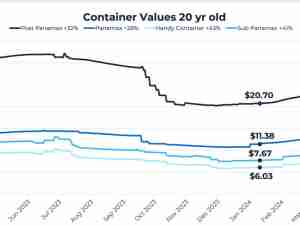Sinopec to delay billion dollar storage project in Indonesia
By: Reuters | Jun 16 2015 at 07:05 AM | Maritime
SINGAPORE - China’s Sinopec Corp will delay a nearly billion dollar oil storage terminal in Indonesia, touted to be Southeast Asia’s largest, by several years due to slow demand for tank space, industry sources said on Tuesday.
The 2.6 million cubic metre storage terminal in Indonesia’s Batam free trade zone to the south of Singapore, was initially expected to become operational by mid-2016, but construction has yet to be started and the facility will not be ready for at least the next three to five years, the sources told Reuters.
“There’s not enough demand in the region right now,” one of the sources familiar with the project said, adding that many of the new storage projects recently built in Malaysia were not yet filled. “It’s about the timing to the market.”
Sinopec Kantons Holdings, a Sinopec subsidiary holding a 95 percent stake in the Batam terminal, declined to comment when contacted by Reuters. A local Indonesian company owns the remaining 5 percent in the project.
Reuters reported in 2012 that Sinopec and its partner would spend $850 million on the project.
Billions of dollars are being poured into the construction of storage facilities in Malaysia and Indonesia as Singapore, Asia’s leading oil trading hub, lacks land for further expansion of its oil terminals.
The investments have anticipated a move by oil price agency Platts - a unit of McGraw Hill Financial Inc - to include Malaysian ports and potentially Indonesian ports in its Market-on-Close pricing process, which is expected to boost demand for storage in the region, traders said.
The delay in Batam might mean Sinopec will change its plans for the project, the first source said, declining to be named as he was not authorised to speak with media.
The terminal was initially aimed at storing 1.9 million cubic metres of crude and fuel oil and 730,000 cubic metres of diesel, gasoline and jet fuel. But this could be redesigned to focus on crude and oil products equally, the source said.
Sinopec Kantons is expected to tender for the engineering, procurement and construction (EPC) contract in the next few months, the source added.
The slide in oil prices by over 40 percent from a year ago has been a factor in forcing at least one other project in Asia to be delayed.
Malaysia’s state-owned Petronas is delaying the start-up of its $16 billion RAPID refining and petrochemical complex in the southern state of Johor until mid-2019, pushing it back from early that year.









